March 12, 2025 | 07:50 GMT +7
March 12, 2025 | 07:50 GMT +7
Hotline: 0913.378.918
March 12, 2025 | 07:50 GMT +7
Hotline: 0913.378.918
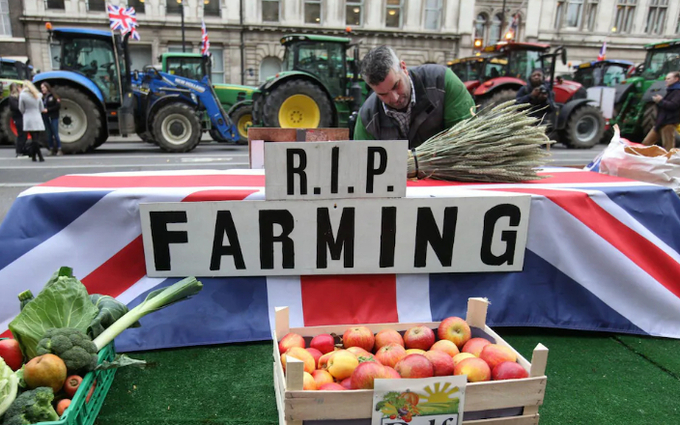
Farmers are already under pressure following the Chancellor’s inheritance tax raid Credit: Zuma Press/Alamy.
Britain’s farmers are braced for £600m of collective losses after poor weather led to the second-worst harvest on record.
According to figures from the Department for Environment, Food and Rural Affairs, the UK’s harvested wheat crop plunged to 11.1m tonnes in 2024, down from 14m the year prior.
It marks the latest blow to Britain’s farmers, who are already under mounting pressure following the Chancellor’s inheritance tax raid.
The latest harvest is the second-smallest in records dating back 25 years, with only 2020 performing worst during the pandemic.
Poor weather bears much of the blame, as it hampered farmers’ ability to sow and also damaged growing conditions.
However, the acreage growing wheat also plunged by 11pc.
Tom Lancaster, from the Energy and Climate Intelligence Unit, estimated that poor harvests have put a £600m hole in farmers’ revenues this year.
He said: “This year’s harvest was a shocker, and climate change is to blame. Whilst shoppers have been partly insulated by imports picking up some of the slack, Britain’s farmers have borne the brunt of the second-worst harvest on record.
“It is clear that climate change is the biggest threat to UK food security. And these impacts are only going to get worse until we reduce our greenhouse gas emissions to net zero, in order to stop the warming that is driving these extremes.”
Yet it was not only wheat that struggled over the past year, as other crops were also affected.
Matt Daragh, from the Agriculture and Horticulture Development Board, said: “Following the wettest September to May on record last season, cereal and oilseed rape production in the UK was considerably challenged, particularly winter sown crops.
“While most spring crops fared better, according to today’s figures, total production of wheat, barley, oats and oilseed rape contracted by 13pc on the year in 2024 to 20.0m tonnes.”
It comes after farmers this week blocked major roads and protested outside Parliament in an attempt to persuade the Government to reverse plans to impose inheritance tax on agricultural land and businesses.
The Agricultural Property Relief, which allows family farms to be passed down without inheritance tax, is being curtailed from April – raising fears for the future of the industry.
Tom Bradshaw, the president of the National Farmers Union, warned MPs this week that some farmers may contemplate suicide.
Under the incoming changes, farmers will be able to pass land to their children tax-free, but only if the parent survives for at least seven years after passing on the property.
“Those people that are in ill health or don’t believe they are going to live for seven years may well decide that they shouldn’t be here on April 2026,” Mr Bradshaw said.
telegraph
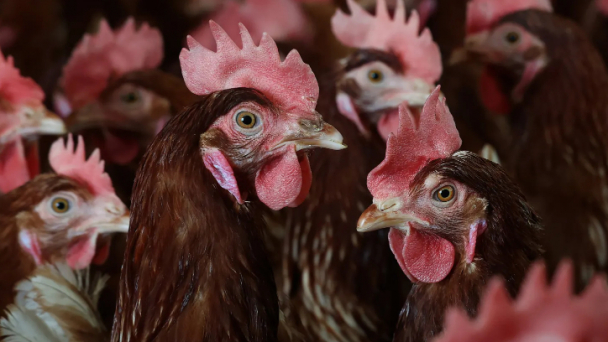
(VAN) Shoppers used to picking up the cheapest eggs at the grocery store may now be reaching for higher-end cartons.
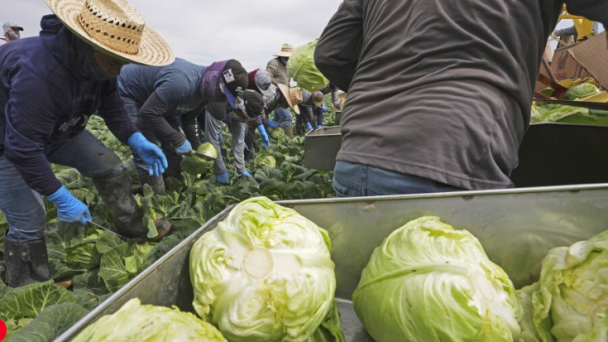
(VAN) Corn and soybean prices for this year’s harvest already fell roughly 10% since the tariffs were first announced a couple of weeks ago.

(VAN) There’s nothing inherently unsafe about genetically modified foods. It’s the potential herbicide exposure that should give you pause.
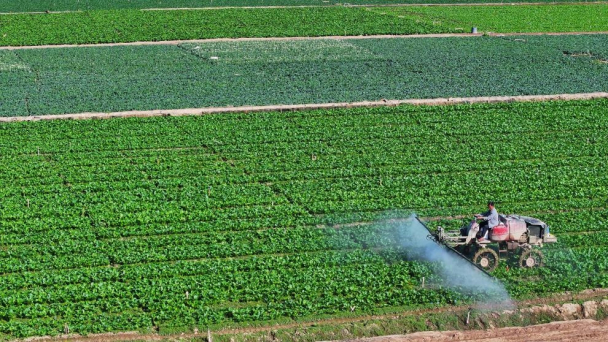
(VAN) China will focus on increasing per-unit yields of grain by expanding projects aimed at improving these yields and intensifying the promotion of high-yield and efficient production models.

(VAN) Results from Pacific fishing areas are presented at Honiara Summit in Solomon Islands.
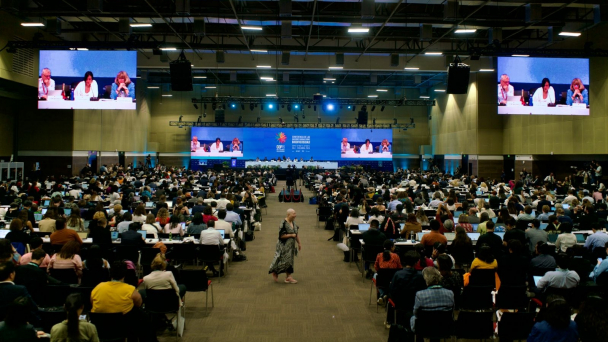
(VAN) Interview with Kaveh Zahedi, Director of the FAO Office of Climate, Biodiversity and Environment.
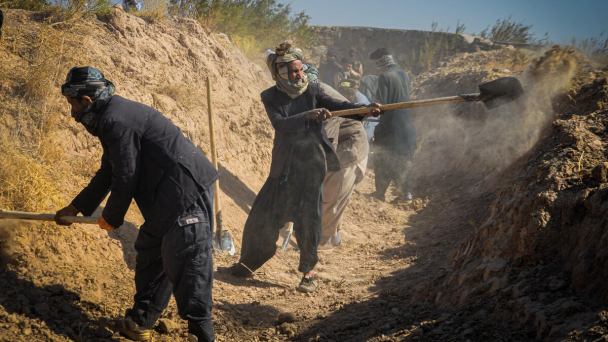
(VAN) The funding will support 14 critical projects across Africa, Asia, Europe, and the Middle East.